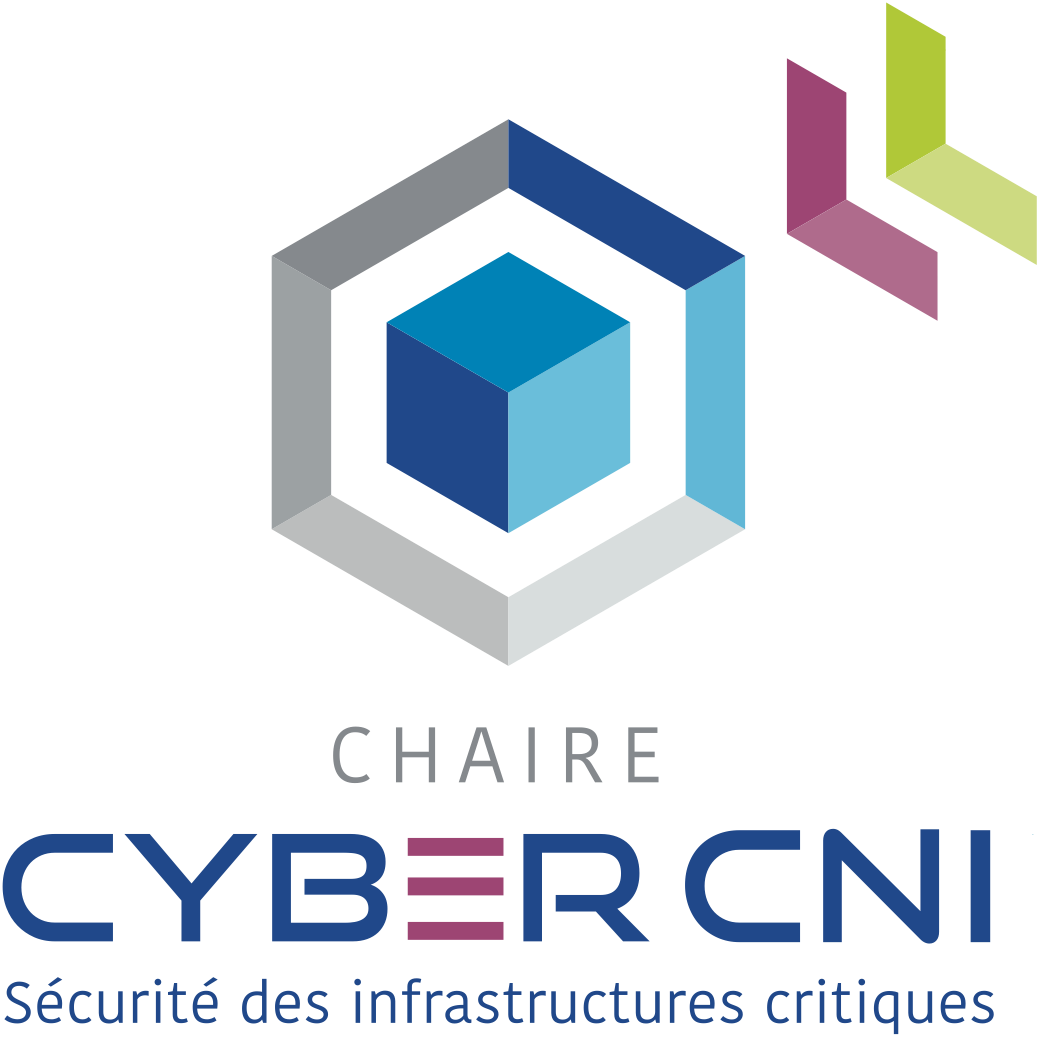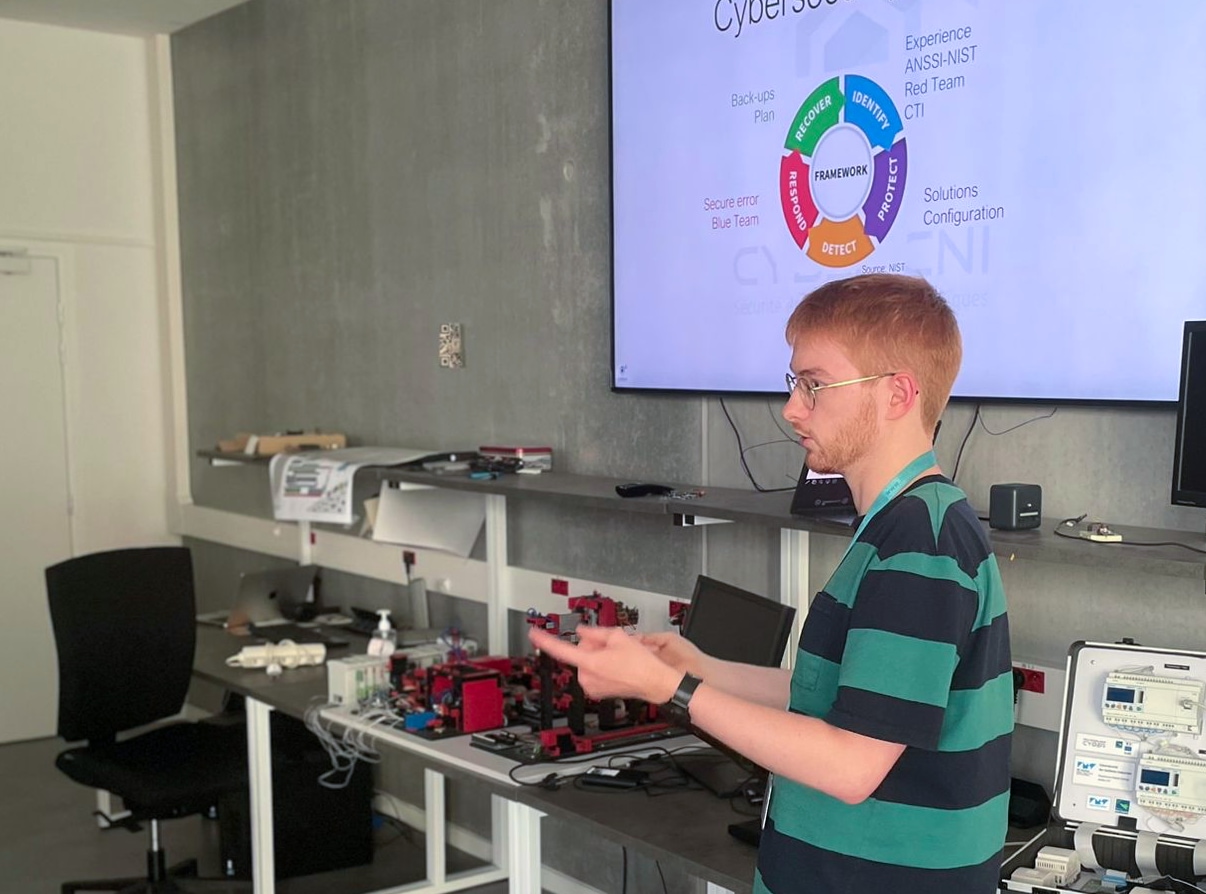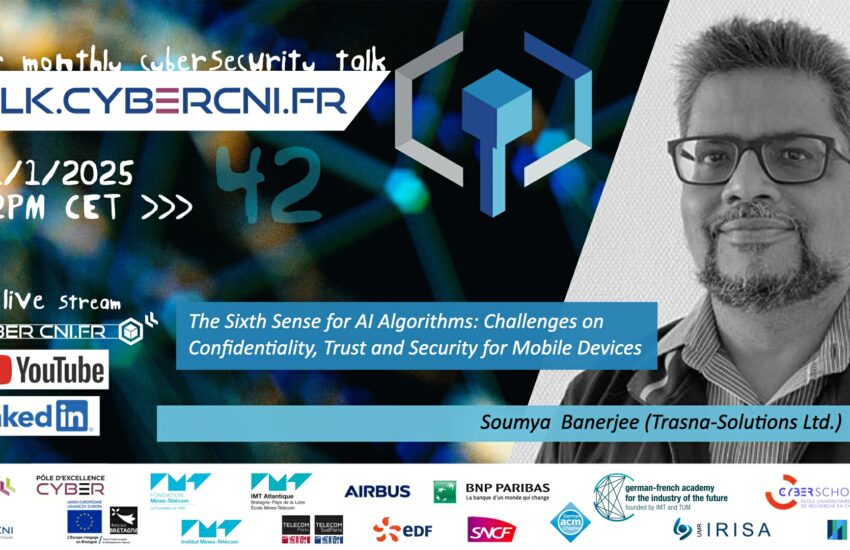Successful Visit of Corps des Mines Students at the Cybersecurity for Critical National Infrastructures Chair, IMT Atlantique
On October 17th, the Chair for Cybersecurity of Critical National Infrastructures at IMT Atlantique had the pleasure of hosting a group of students from the prestigious Corps des Mines. The visit, which took place on our Rennes campus, was an excellent opportunity to share our research and innovation efforts with future leaders of the public sector who are currently undergoing a six-week module on cybersecurity.
The Corps des Mines students, many of whom already have a strong foundation in IT, engaged with our team throughout the day. While their technical background allowed them to grasp the complexities of cybersecurity, the visit offered new insights into the specialized domain of protecting critical national infrastructures—an area that lies at the heart of our chair’s mission.
The Chair for Cybersecurity of Critical National Infrastructures operates at the intersection of academia, industry, and public institutions. Supported by our key partners—Airbus, BNP Paribas, EDF, SNCF, the Pôle d’Excellence Cyber, and the Brittany region—we are committed to addressing cybersecurity challenges that affect some of the most vital sectors in society. During this visit, we were able to give the students a clear picture of how collaborative research, coupled with real-world industry experience, drives innovation in protecting national infrastructure from cyber threats.
The students were introduced to some of the chair’s ongoing research and the exciting work we are doing in collaboration with our partners. They heard presentations from our team that covered a broad spectrum of cutting-edge topics. Mathis Durand, one of our PhD students, delivered an engaging talk on his research on honeynets—systems designed to attract and study cyberattacks in controlled environments, which help organizations better understand and defend against emerging threats. His presentation provided valuable insights into how honeynets contribute to proactive cybersecurity strategies by identifying attackers’ behaviors before they reach critical systems.
Another highlight was the presentation from Hugo Bourreau, another PhD student, who shared his work on Digital Twins. This innovative approach enables real-time simulation of systems in a digital environment, which allows for testing resilience and predicting vulnerabilities in industrial infrastructures before incidents occur. Hugo’s talk emphasized how Digital Twins can serve as a powerful tool in safeguarding national infrastructure by providing continuous monitoring and response capabilities.
While the students were already well-versed in IT concepts, the visit shed light on the unique challenges of applying cybersecurity principles to national infrastructures. These include not only technical hurdles but also the strategic, societal, and regulatory dimensions that come into play when securing large-scale systems that millions of citizens depend on daily.
The visit was a success, and we were impressed by the students’ curiosity and insightful questions throughout the day. Their engagement demonstrated the importance of bridging academic research and practical applications to advance the field of cybersecurity. It is our belief that such interactions will help future public sector leaders make informed decisions about national cybersecurity policies, and we were proud to be part of that journey.
As we continue to drive research at the intersection of critical infrastructure protection and cybersecurity, we look forward to hosting more visits and fostering further collaboration with stakeholders across academia, industry, and the public sector.
A special thanks to our partners and to everyone who contributed to making this visit a memorable and informative experience.
- Season’s Greetings from the Chair Cyber CNI! - December 26, 2024
- 📢 La Chaire Cyber CNI et la Chaire Cyber Naval vous invitent à la demi-journée “L’IA à la croisée des chemins : Renforcer la sécurité ou donner du pouvoir aux cybermenaces ?” lors de l’European Cyber Week ! 🚀 - November 13, 2024
- Can You Spot Fake News? Test Your Skills with JudgeGPT! - November 8, 2024










